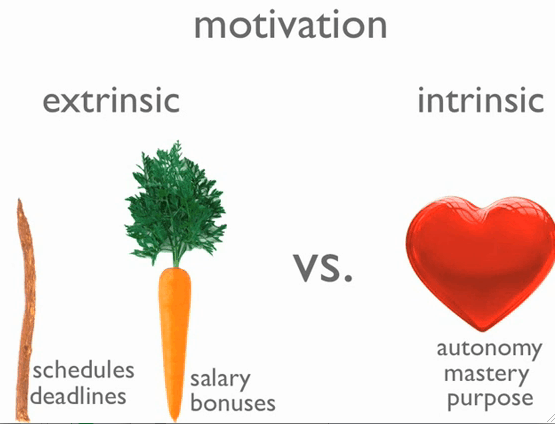
Psychologie des ressources humaines dans la technologie : ce qu'il faut savoir pour recruter les meilleurs talents en informatique

When recruiting developers, what do you think you rely on? You most likely reach out to the candidate, check their social media profiles, talk to them, and ask them to write some code. It may seem like a lot of ways to get to know a potential employee, but there’s actually one important thing that can get in the way of finding “the one”. A pink, spongy thing: your brain. The fact that we’re wired to make judgments subconsciously doesn’t mean it’s impossible to hire the best candidate. It means you simply have to be aware of human resources psychology mechanisms at play so you can prepare ahead and reduce your innate bias.
Here’s are the psychological mechanisms behind hiring that you simply can’t ignore.
Human resources psychology: I, me, my, mine
Let’s take a look at everyone’s favourite topic: the self. What you’re about to read will come in handy not only when you’re first reaching out to the candidate but throughout the whole recruitment process.
Selon le Rutgers University research entitled “Is it really about me? Message content in social awareness streams”, 80% of communication on Twitter comes from so-called meformers (people who typically post content related to themselves and their thoughts), as opposed to informers, who constitute only 20% of Twitter’s population.

You may also be interested in Harvard University research using neuroimaging and cognitive methods to determine whether “disclosing information about the self is intrinsically rewarding”. The research findings shed light on human resources psychology as they suggest that “we get a biochemical buzz from self-disclosure” because of the way our brains function.
Need proof? In of the experiments, researchers talked to participants during a fMRI scan. When participants discussed themselves and shared personal information, activity in the reward areas of the brain was recorded. Conversely, talking about other people didn’t result in any activity in these areas.
Interestingly, talking about the self-activated neural regions which are part of the mesolimbic dopamine system typically engaged in responses to pleasure like sex and food.
Why is HR psychology important for recruiters?
We’re biologically wired to focus on ourselves, and our career choices impact us more than other people. For that reason, you should start your initial outreach with talking about the developer you’re contacting, and not yourself. Remember that everybody’s favourite topic is themselves.
Take advice from recruiter Rachel Saunders who reveals that personalized outreach increases your chances of hiring, with mildly-tailored communication getting a 25% response rate, and highly-tailored communication receiving 60% to 70% of responses. You need to do your homework and let your dream candidates know you’ve taken the time to analyze their profiles. Talk about THEM to get their brain interested.
I strongly recommend Rachel Saunders’ 4-ingredient recipe for top tech talent outreach:
- Find something personal about the person that they’ve publicly shared over social media, like interests, hobbies, or passions.
- Look for content related to that interest, i.e. an article or a resource and share it with them in a personalized email. Start a relationship in a more informal way to stand out.
- Once you do that, get to what she calls “their superpower” and talk about the skills that you found interesting.
- Finally, ask whether they’d be open to having a quick chat about their career. To quote Rachel, the “goal is to make it clear I understand now might not be the right time, but that I’d still like to get to know them better and earn their trust in the event we are a potential fit in the future.”
Remember that good developers get a tonne of outreach so you need to make sure you cut through the clutter. Personalization is no longer an option but a necessity.
First impressions & gut feeling in HR
The next aspect of human resources psychology I’d like to discuss is gut feeling. You’re probably aware that people draw trait inferences from the appearance of others, and I regret to inform you’re not an exception.
Have you heard of the theory that we make judgments about people in 7 seconds?

Selon la study by Janine Willis and Alexander Todorov of Princeton University, it takes even less time as we make up our mind “after a 100-Ms exposure to a face”. That’s a decisecond or one-tenth of a second. It’s basically how long it takes you to blink.
Willis and Todorov’s research suggests that “judgments made after a 100-ms exposure correlated highly with judgments made in the absence of time constraints, suggesting that this exposure time was sufficient for participants to form an impression.” Although longer exposure somewhat differentiated the judgments of some participants, it also boosted confidence for many of the judgments.
Sounds pretty gloomy because it suggests that it doesn’t matter what you can or cannot do, you either win or lose before you even open your mouth.
That said, you should know that Todorov’s later research proves that’s not 100% true.
Later research by Todorov and Jenny M. Porter corrected earlier experiments which relied on exposure to single images of many people. Todorov’s and Porter’s study fixed the issue because they relied on multiple images of the same person. Results show much more variety in how people perceived the person analyzed.
This is great news because “images of the same individual can lead to different impressions, with within-individual image variance comparable to or exceeding between-individuals variance for a variety of social judgments”. This means we tend to favour different representations of the same people for different purposes (like for dating, political campaign, or job interviews). It also means it’s not that easy to be fooled when you see more than one impression from your candidate, which you do when you get to talk to them.
First impressions in HR psychology
If you work in recruitment, I highly recommend a study by Mattersight which points out the real value of first impressions in human resources psychology. According to data gathered in the course of the research, a staggering 80% of employees “say they would take one job over another based purely on personal connections formed during the interview”.

This is HUGE for recruitment professionals because HR is often where that first contact happens.
Think of your HR representatives as ambassadors of your company if you want to recruit and retain top tech workforce.
Remember that first impressions are a double-edged sword – you’re making inferences during the interview, but so is the candidate. Make sure you come across as likable and try to establish rapport early on.
Affinity effect
If you still think that you’re 100% unbiased when interviewing developers in your recruitment process, think again. Ever heard the old adage “birds of the feather flock together”?

The team of Harvard has worked out why we tend to choose people who remind us of… ourselves. In research published in the Proceedings of the National Academy of Sciences, the team of Harvard University revealed that medial prefrontal cortex (MPFC) “is engaged both when we are introspective about ourselves and when we make inferences about the minds of others who have leanings perceived to be similar to our own”.
Source : OUPblog
In other words, medial prefrontal cortex (MPFC) is active when people think about themselves or others like them, and does not show activity when they think of people who they don’t associate with. The upper part of MPFC indicates judgments about different people and, to quote Adriana Jenkins of Harvard University, “once you have a little piece of information about someone being similar to you or different, you seem to take it and run with it. You may think they are similar to you across the board, even though you may not have much reason to think this. It is rather surprising.”
Why is this important for HR professionals?
In essence, most of the decisions you make are affected by human resources psychology and the way our brains function. Findings of research by Harvard team suggest we tend to empathize more with people who we believe are similar to us in some respect. This means that if you rely on interviews and resumes without checking the knowledge of technical minutia, you might be subconsciously sabotaging your recruitment process.
On the one hand, that’s not actually a bad thing, because it allows you to hire for company culture. On the other, there’s a risk you might hire people who you subconsciously feel are similar to yourself, and not people who are best for the job.
Motivation 3.0
Once you start discussing details with the candidate, what should you talk about to make them interested?
Think about what motivates people (and no, it’s not just the money). According to Dan Pink, it’s actually:
- Autonomy – the desire to direct our own lives,
- Mastery – the need to keep getting better at what we do,
- Purpose – believing we can make a difference in the world with what we do.
Autonomy, mastery, and purpose are intrinsic motivators different from the traditional “carrots and sticks” extrinsic motivators.

